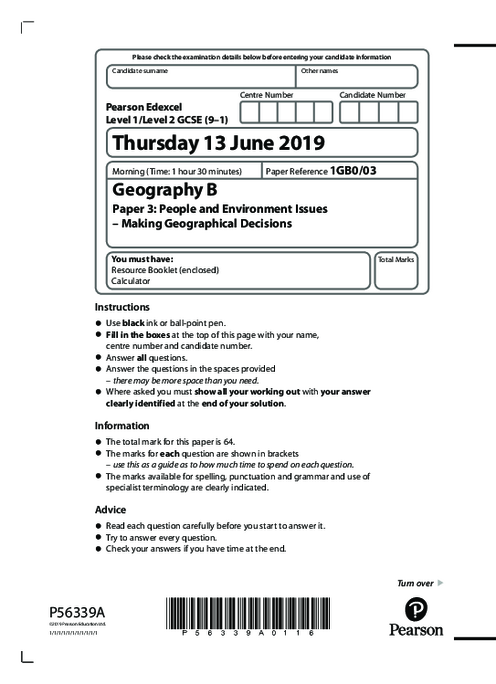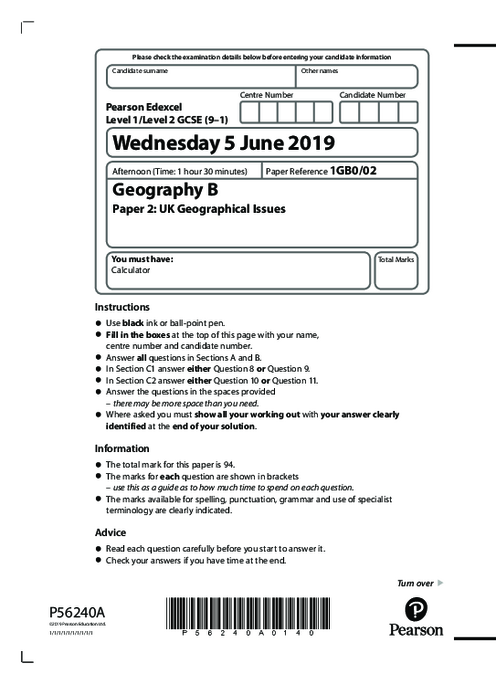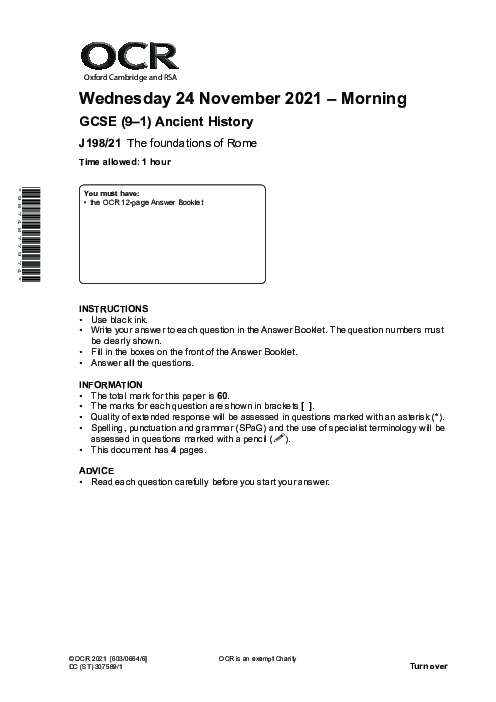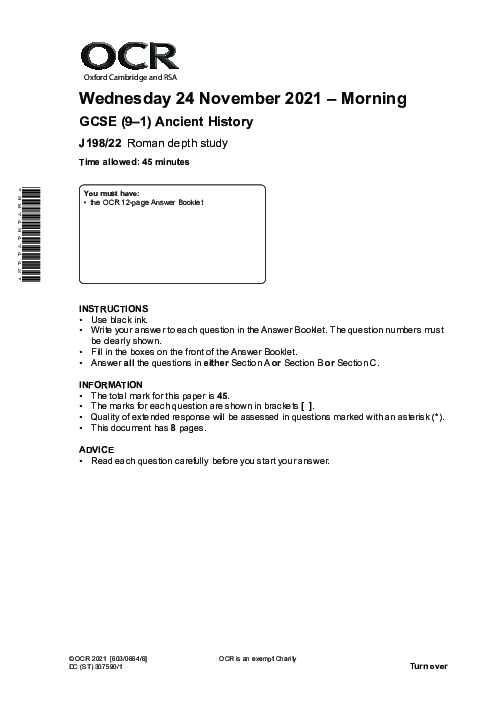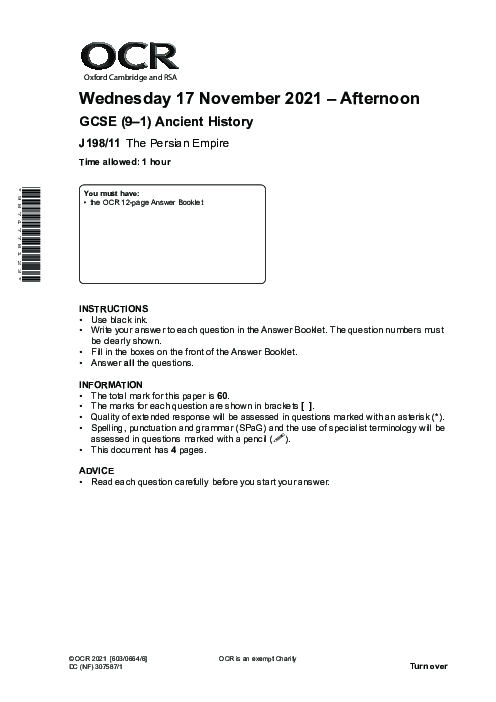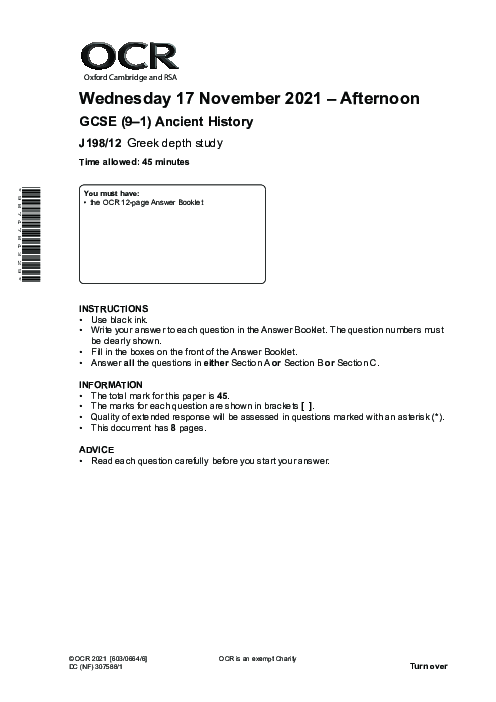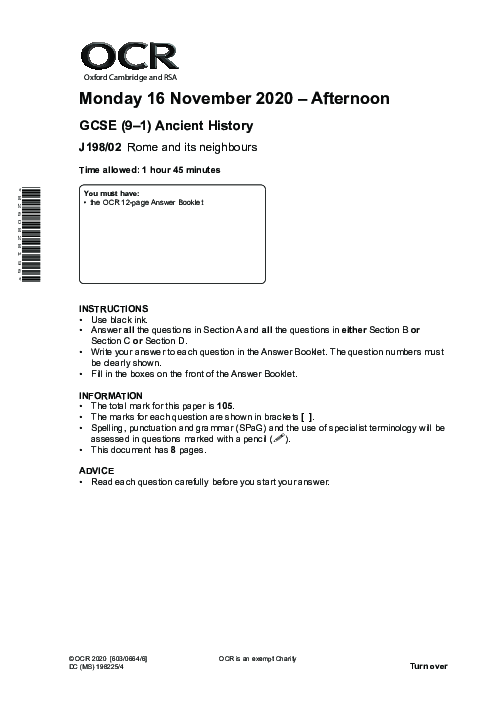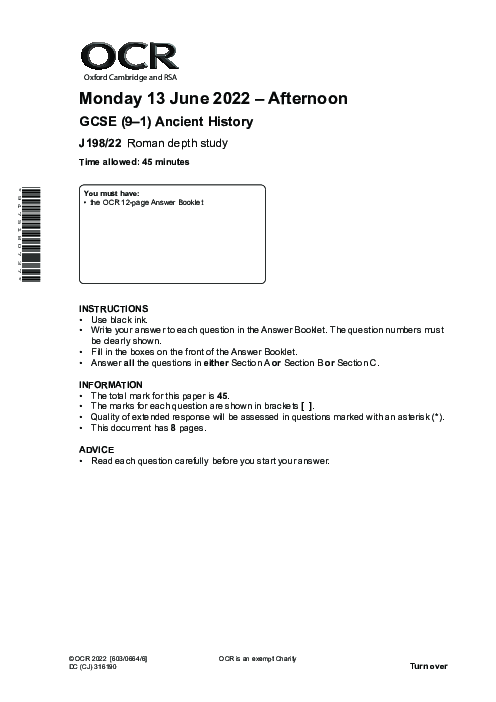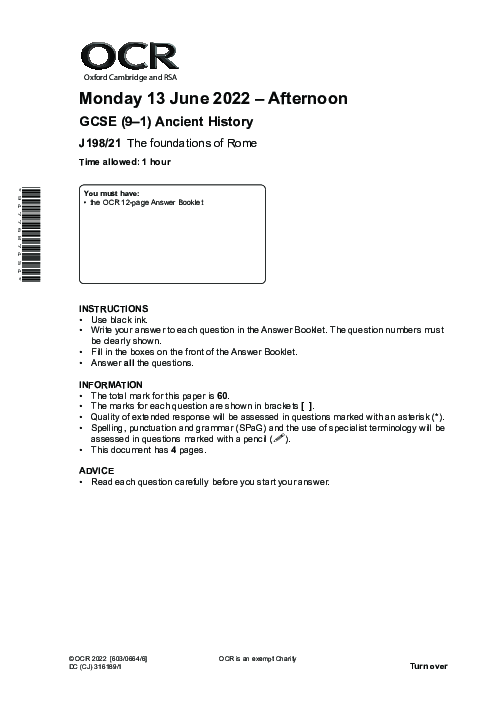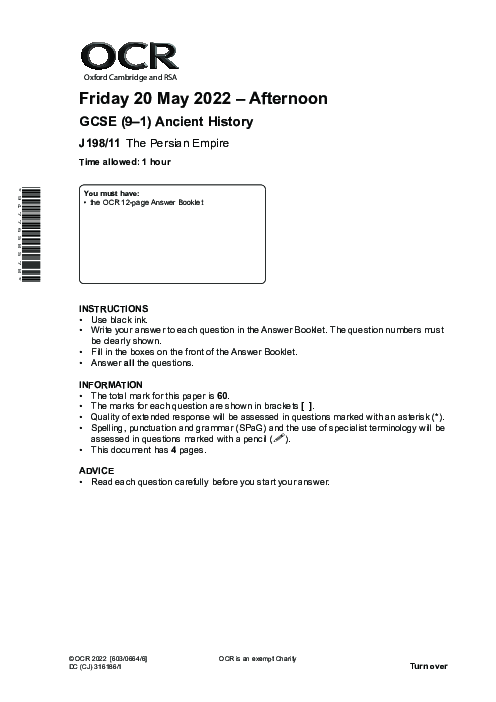Ancient History J198,01 November 2020 , OCR GCSE Past Papers with Mark Schemes
OCR
GCSE
Ancient History (J198)
Nov
2020
2. From Tyranny to Democracy, 546–483 BC | Removal attempts on Cleisthenes, Athenian support for the Ionian revolt, temple dedication in Samos, Themistocles’ leadership strategies, accuracy of Plutarch’s account, political challenges of Polycrates, motives behind Cleisthenes’ reforms.
3. Athens in the Age of Pericles, 462–429 BC | Leadership of the Delian League, functions of the boule, Pericles’ citizenship laws, Panathenaic Games events, reliability of Aristophanes’ and Plutarch’s accounts, role of public speaking in democracy, Pericles’ leadership evaluation.
4. Alexander the Great, 356–323 BC | Name of Alexander’s horse, Macedonian military formation, key generals, location of mass wedding, siege warfare tactics at the Rock of Aornos, accuracy of Arrian’s account, impact of sieges on Alexander’s success.
5. Key Interpretations and Analysis | Persian rulers’ governance focus, Athenian democracy motivations, reliability of historical sources, Alexander’s military strategies, influence of Pericles on Athenian society.
6. Extended Response Topics | Persian rulers’ efficiency vs. military aggression, Cleisthenes’ reforms as anti-tyranny measures, Pericles’ effectiveness, Alexander’s sieges and leadership, uncertainty surrounding Alexander’s death.
معلم موافق رایگان بودن است.
1. The Persian Empire, 559–465 BC | Xerxes’ ascension and predecessor, Persian capital cities, Cyrus’ expansion strategies, Xerxes’ leadership and reliance on fear, Persian rulers’ priorities in governance and warfare.2. From Tyranny to Democracy, 546–483 BC | Removal attempts on Cleisthenes, Athenian support for the Ionian revolt, temple dedication in Samos, Themistocles’ leadership strategies, accuracy of Plutarch’s account, political challenges of Polycrates, motives behind Cleisthenes’ reforms.
3. Athens in the Age of Pericles, 462–429 BC | Leadership of the Delian League, functions of the boule, Pericles’ citizenship laws, Panathenaic Games events, reliability of Aristophanes’ and Plutarch’s accounts, role of public speaking in democracy, Pericles’ leadership evaluation.
4. Alexander the Great, 356–323 BC | Name of Alexander’s horse, Macedonian military formation, key generals, location of mass wedding, siege warfare tactics at the Rock of Aornos, accuracy of Arrian’s account, impact of sieges on Alexander’s success.
5. Key Interpretations and Analysis | Persian rulers’ governance focus, Athenian democracy motivations, reliability of historical sources, Alexander’s military strategies, influence of Pericles on Athenian society.
6. Extended Response Topics | Persian rulers’ efficiency vs. military aggression, Cleisthenes’ reforms as anti-tyranny measures, Pericles’ effectiveness, Alexander’s sieges and leadership, uncertainty surrounding Alexander’s death.

پیش نمایش صفحه اول فایل
تعداد صفحات فایل : 8
باز نشر محتواها در فضای مجازی، ممنوع است.

